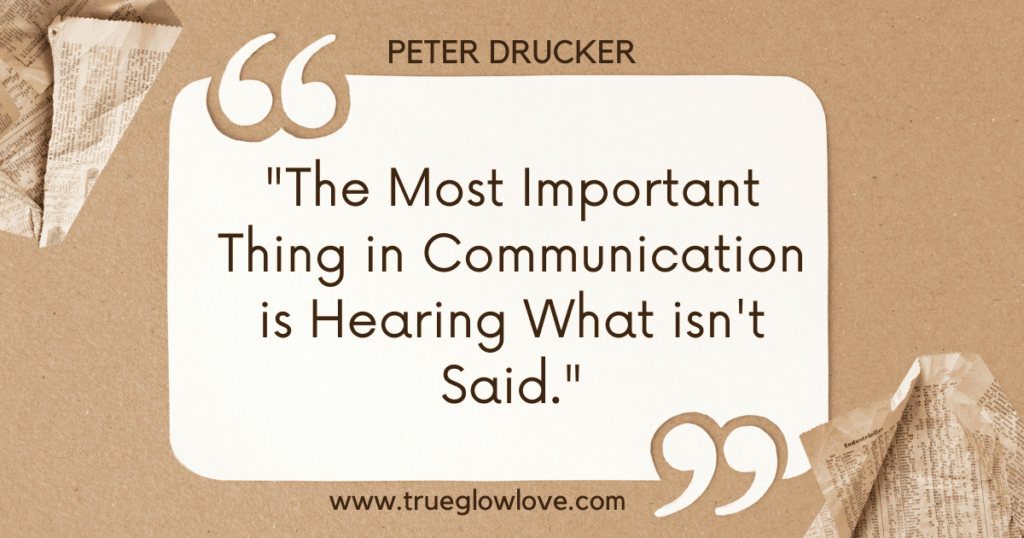How to Avoid 9 Common Marriage Problems Faced by Couples
Picture this: You and your partner are super excited to get married. Everything feels perfect like you’re walking on clouds. But after a while, little things start to bother you. Maybe you argue about who takes out the trash, or maybe you just don’t feel as connected as you used to. Arguments pop up more often. It’s not the end of the world, but it’s not the fairytale you imagined. Sound familiar?
Marriage is awesome – a true partnership, a best friend for life. But let’s be real, it’s also work. Every couple faces challenges. It’s normal! You’re not alone if you’ve hit a few bumps in the road.
The good news? You can avoid a lot of the common problems that trip up couples. Think of this article as your roadmap to dodging those relationship potholes. We’re going to break down how to avoid 9 common marriage problems faced by couples, giving you the tools to build a stronger, happier, and more resilient relationship. We’ll keep it real, and simple, and give you the advice you can use, starting today. No complicated jargon, just practical tips to help you and your partner thrive.
Table of Contents
Talking It Out: Communication Breakdowns
Why is talking so hard sometimes?! It feels like it should be the easiest part, right? But communication is often the first thing to break down in a marriage.
Think of it like a game of telephone. You say one thing, your partner hears something completely different, and suddenly you’re arguing about who left the milk out (again!). This happens because we often fall into bad communication habits. We might not be really listening, interrupting each other, getting defensive, or just assuming we know what our partner is thinking (spoiler alert: we usually don’t!).
1. Mastering Communication in Your Marriage: It’s About Effort, Not Perfection
Let’s be honest: nobody’s born a communication expert. But the good news? You don’t need to be perfect—you just need to try. Think of communication like a muscle: the more you work it, the stronger your connection becomes. Here’s how to level up your skills and turn those awkward silences or heated moments into opportunities for growth:
Tip 1: Become an Active Listening Ninja
- Stop scrolling, and start connecting.
- Active listening isn’t just nodding while mentally drafting your grocery list. It’s about full presence. Put your phone face-down, make eye contact, and notice your partner’s body language. When they share something tough, resist the urge to interrupt with solutions. Instead:
- Paraphrase their words: “So, what I’m hearing is you felt overlooked when I canceled our date night?”
- Ask open-ended questions: “What part of this situation hurt the most?”
- Validate their feelings: “That sounds frustrating. I’d feel that way too.”
- Why this works: Studies show couples who practice active listening report 67% higher relationship satisfaction. It’s not about agreeing—it’s about showing you care enough to truly understand
Tip 2: Ditch the Blame Game with “I” Statements
Swap accusations for invitations.
Phrases like “You always forget to text me!” instantly put your partner on defense. Instead, frame issues around your feelings and needs:
- ❌ “You’re always on your phone!” → ✅ “I feel lonely when we’re together and you’re scrolling.”
The magic here? “I” statements remove the finger-pointing and focus on teamwork. It’s not you vs. them—it’s both of you vs. the problem.
Tip 3: Schedule “Relationship Tune-Ups” (Yes, Like a Car!)
Prevent breakdowns before they happen.
Life gets chaotic, and meaningful talks often get shoved aside. That’s why regular check-ins are non-negotiable. Block 15 minutes daily (during dinner or a walk) and 30 minutes weekly for deeper convos. Try prompts like:
- What’s one thing I did this week that made you feel loved?
- Is there anything I’ve been missing lately?
- How can we make next month more fun?
Pro tip: Communication isn’t a one-time fix—it’s a habit. Start small. Celebrate progress. And when you mess up (because we all do)? Say “I’m sorry, let’s try again.” That’s the real secret sauce.

2. Money, Money, Money: Why Finances Stress Couples Out (and How to Fix It)
Let’s cut to the chase: money fights are the #1 predictor of divorce, according to a University of Michigan study. But here’s the kicker—it’s rarely just about the numbers in your bank account. Money arguments are like icebergs: what you see (the $200 impulse Amazon purchase) is just the tip. Underneath? Deep-rooted fears about security, power dynamics, or even childhood baggage.
Maybe you grew up watching your parents pinch pennies, while your partner’s family splurged on vacations. Or one of you sees money as freedom and the other views it as safety. These invisible scripts shape how you save, spend, and argue about dollars—and they’re why a simple budget talk can feel like a battle for control.
Why Money Tears Couples Apart
Power Imbalances: If one partner controls all the finances, the other feels infantilized. (Spoiler: That’s not a recipe for romance.)
The Saver vs. Spender Trap: One of you hoards cash like a squirrel with acorns; the other treats Target like a therapy session. Resentment builds when values clash.
Debt Secrets: Hiding credit card bills or student loans? Financial infidelity erodes trust faster than a $500 impulse buy.
Getting on the Same Financial Page: Your Step-by-Step Guide
Tip 1: Start with a “Money Confession” Night
Grab two glasses of wine (or mugs of tea) and lay ALL your cards on the table. Share:
- Your credit score (yes, really)
- Debts (student loans, medical bills, that Afterpay habit)
- Financial fears (“I’m terrified we’ll end up homeless like my aunt“)
- Wins (“I managed to pay off $5000 in debt last year!”)
Pro tip: Use “I” statements to soften the blow. Instead of “You’re terrible with money!” try “I get anxious when we don’t track our spending.”
Tip 2: Build a Budget That Doesn’t Suck
Ditch the spreadsheets if they make your eyes glaze. Try these instead:
- Apps: Honeydue (for couples), YNAB (for zero-based budgeting)
- The 50/30/20 Rule: Allocate 50% to essentials, 30% to discretionary spending, and set aside 20% for saving or paying off debt.
- Cash Stuffing: For overspenders—allocate physical cash to categories like groceries or fun money.
Tip 3: Set Goals That Make You Both Cheer
Compromise is key. Maybe you save 10% for a Hawaii trip *and* 5% for retirement. Examples:
- Short-term: Let’s save $1k for a weekend getaway.
- Long-term: We’ll pay off the car by 2025.
- Fun: $100/month for guilt-free taco Tuesdays.
Tip 4: Embrace the 70/30 Compromise
You won’t agree on everything—and that’s okay. If 100% alignment isn’t happening, aim for 70% shared priorities and 30% personal freedom. Example:
- We’ll max out our Roth IRA (team goal), but you keep your gaming budget, and I keep my Starbucks runs.
Remember: Financial harmony isn’t about perfect spreadsheets—it’s about trust, teamwork, and tiny tweaks. Start small: try one tip this week. Maybe it’s a 10-minute money chat or downloading Honeydue. Progress, not perfection, keeps your wallet—and your relationship—healthy.
3. How to Rekindle Intimacy When Life Gets in the Way
Let’s face it: intimacy isn’t just candlelit dinners and weekend getaways. It’s the quiet moments—like laughing at an inside joke while folding laundry or feeling your partner’s hand brush yours during a stressful day. But when work deadlines pile up, kids demand attention, or Netflix becomes your default “date night,” that emotional and physical connection can fade faster than a Snapchat message. Suddenly, you’re two people sharing a couch, not a life.
The good news? Losing the spark doesn’t mean losing your relationship. Intimacy is like a campfire: it needs tending, but even the faintest embers can roar back to life.
What Does Intimacy Look Like?
Intimacy isn’t just sex (though that’s part of it!). It’s a mix of:
- Physical Connection: Hugs, kisses, holding hands, or even a foot rub after a long day.
- Emotional Bonding: Feeling safe to share your fears, dreams, or that weird thing your boss said.
- Shared Moments: Inside jokes, silent car rides where you just know what the other’s thinking, or teaming up to assemble IKEA furniture without arguing.
Bottom line: Intimacy is about feeling seen, valued, and chosen—even when life feels chaotic.
It’s about physical affection (hugs, kisses, holding hands), emotional connection (sharing your feelings, supporting each other), and yes, sexual intimacy. It’s about feeling seen and valued by your partner.
Bringing Back the Butterflies
Why the Spark Fades and Ways to Bring It Back to Life
Routines are comfort zones, but they’re also passion killers. Maybe you’re stuck in the “How was your day?” → “Fine” loop, or date nights have been replaced by scrolling TikTok in silence. Here’s the fix:
Tip 1: Reinvent Date Nights (No Fancy Restaurants Required)
Why it works: Dates remind you why you fell in love. But forget pressure-filled plans—keep it simple:
- At-Home Movie Night: Phone-free, with popcorn and a blanket fort. Pro tip: Pick a movie you both hate—roasting it together is oddly bonding.
- The “Remember When…” Date: Recreate your first date, or cook a meal from your honeymoon destination.
- Micro-Dates: 15-minute coffee breaks or sunrise walks. Consistency > grandeur.
Tip 2: Master the Art of Tiny Affection Bombs
Why it works: Small gestures build emotional muscle memory. Try:
- The 10-Second Hug: Science says hugs lasting 10+ seconds release oxytocin (the “love hormone”).
- Text Roulette: Send a random “I’m proud of you” or “Remember that time we…” message midday.
- Compliment Swap: “I love how you handled that tough call today” or “Your laugh still gives me butterflies.”
Tip 3: Talk About the Uncomfortable Stuff
Why it works: Avoiding tough conversations breeds distance. Start with:
- The “I Wish…” Game: “I wish we could __ more often.” (Fill in: cuddle, talk about dreams, try new things in bed.)
- The Traffic Light Check-In:
- Green: “I’m feeling connected and happy!”
- Yellow: “I’m doing all right, but it would be great if we had more __.”
- Red: “I’m lonely/overwhelmed. Can we talk?”
Note: Use “I” statements to avoid blame. “I miss our late-night talks” hits softer than “You never talk to me!”
Tip 4: Schedule Intimacy Like You Schedule Meetings
Why it works: If you don’t plan it, it won’t happen. Try:
- Weekly “Us Time”: Block 2 hours for anything non-logistical—no chores or kid talk allowed.
- Tech-Free Zones: Ban phones from the bedroom after 8 PM. Replace scrolling with back rubs or sharing highs/lows of the day.
- Intimacy Menus: Write down 3-5 things that make you feel loved (e.g., a walk, cuddling, a deep conversation). Swap lists and pick one weekly.
When It Feels Awkward… That’s Normal!
Rebuilding intimacy can feel clumsy at first—like relearning a dance. That’s okay. Start small:
- Hold hands during a walk.
- Place a heartfelt note on the bathroom mirror: “You’re my absolute favorite person in the world.”
- Say “ I love you” with genuine feeling, not just as a matter of routine.
Remember: Intimacy isn’t a finish line—it’s a daily choice. Some days you’ll nail it; others, you’ll collapse into bed exhausted. What matters? You keep trying.
Final Thought: The best relationships aren’t perfect—they’re resilient. By prioritizing these tiny moments of connection, you’re not just “keeping the spark alive.” You’re building a love that evolves, adapts, and grows stronger—even when life throws chaos your way.
4. How to End the Chore Wars and Restore Balance
Let’s talk about the silent relationship killer: the chore wars. You know the drill—one person’s scrubbing dishes while the other’s binge-watching Netflix. It’s not just about the mess; it’s about fairness. When one partner feels like they’re carrying the load, resentment builds faster than a pile of dirty laundry.
Why does this happen? Because unequal division of labor feels like a lack of respect. It’s not just about the chores—it’s about feeling valued and supported. The good news? You don’t need a magic wand to fix this. With a little teamwork (and maybe a chore chart), you can turn the tide.
Why Chores Cause So Much Drama
- The Invisible Labor Trap: One partner handles everything—meal planning, grocery shopping, remembering to buy toothpaste—while the other takes out the trash once a week.
- Assumption Nation: “They should just know what needs to be done!” Spoiler: They don’t.
- Scorekeeping: “I did the dishes three times this week, and they did… nothing.” Keeping tabs breeds bitterness.
How to Make Chores Fair (and Maybe Even Fun)
Tip 1: Have the “Chore Talk” (Without the Eye Rolls)
Why it works: Assumptions are the enemy of fairness. Sit down and:
- List everything: From vacuuming to paying bills to scheduling vet appointments.
- Acknowledge invisible labor: “I know you don’t see it, but meal planning takes me hours every week.”
- Ask, don’t accuse: “How do you feel about how we’re splitting things up?”
Tip 2: Create a Chore Chart (Yes, Like in Kindergarten)
Why it works: Visuals remove the guesswork. Try:
- Apps: Sweepy, Tody, or even a shared Google Calendar.
- The “Pick Your Poison” Method: Each person chooses the chores they hate the least. (Example: “I’ll tackle the laundry if you take care of the bathroom.)
- Rotating Tasks: Switch things up weekly to avoid monotony.
Bonus: Add a reward system. Finish your chores by Friday? Celebrate with takeout or a movie night.
Tip 3: Ditch the Scorecard Mentality
Why it works: Marriage isn’t a competition—it’s a partnership. Instead of tallying who did what:
- Focus on the goal: A clean, comfortable home you both enjoy.
- Celebrate effort: “Thanks for vacuuming—it looks amazing!”
- Be flexible: Some weeks, one person will do more. That’s life.
Tip 4: Make Chores a Team Activity
Why it works: Shared tasks = bonding time. Try:
- The 15-Minute Power Clean: Set a timer and tackle chores together.
- Chore Dates: Blast music while folding laundry or washing dishes.
- Kid Involvement: If you have kids, assign age-appropriate tasks. (Yes, even toddlers can “help.”)
When All Else Fails, Outsource
If you can afford it, hire help for the tasks you both hate. A cleaning service or lawn care can save your sanity—and your relationship.
Final Thought: Fairness isn’t about splitting chores 50/50—it’s about feeling like a team. By tackling this issue together, you’re not just cleaning the house; you’re building trust, respect, and a stronger partnership. And if all else fails, a friendly game of rock-paper-scissors never hurts!
5. Parenting as a Team: How to Navigate Conflicts and Stay United
Let’s be real: Parenting is one of the hardest—and most rewarding—things you’ll ever do as a couple. But it’s also a breeding ground for conflict. Maybe you’re the “let them cry it out” type, while your partner rushes in at the first whimper. Or perhaps you’re all about structure and routines, but your spouse is more “go with the flow.” These differences can lead to arguments, confusion for the kids, and a nagging feeling that you’re not on the same team. You don’t have to agree on everything to parent effectively. The key is presenting a united front and working together
Why Parenting Styles Clash
- Different Upbringings: You were raised with strict rules; your partner grew up in a laid-back household.
- Personality Differences: One of you is naturally more nurturing, while the other is more disciplined.
- Lack of Communication: “I thought we agreed on no screen time!” “Wait, since when?!”
How to Parent as a Team (Without Losing Your Mind)
Tip 1: Have the “Parenting Philosophy” Talk
Why it works: You can’t be on the same page if you’ve never read the book. Sit down and discuss:
- Core Values: What kind of adults do you want your kids to become? (Kind? Independent? Resilient?)
- Discipline Approach: Time-outs, natural consequences, or something else?
- Dealbreakers: “No hitting, ever.” “No sugar before bedtime.”
Tip 2: Present a United Front (Even When You Disagree)
Why it works: Kids are like tiny lawyers—they’ll exploit any loophole. To avoid this:
- Back Each Other Up: If one parent says “No dessert,” the other doesn’t sneak them a cookie.
- Embrace the “We” Approach: “Together, we’ve agreed that bedtime will be at 8 PM.”
- Debate Privately: If you disagree at the moment, say, “Let me talk to Mom/Dad about this,” and revisit it later.
Remember: It’s okay for kids to see you resolve conflicts—it teaches them healthy communication.
Tip 3: Support Each Other’s Decisions (Even the Questionable Ones)
Why it works: Trust is the foundation of teamwork. Even if you’re not 100% on board with a decision:
- Public Support: “Mom said no TV, so let’s find something else to do.”
- Compromise: “Next time, let’s try __ instead.”
Tip 4: Take Parenting Classes Together
Why it works: Sometimes, you need a neutral third party to help you align. Look for:
- Local Workshops: Check community centers or hospitals.
- Online Courses: Platforms like Positive Parenting Solutions or Big Little Feelings.
- Books: The Whole-Brain Child or How to Talk So Kids Will Listen.
Bonus: Learning together strengthens your bond and gives you shared tools to tackle challenges.
Tip 5: Schedule “Parenting Check-Ins”
Why it works: Life gets chaotic, and parenting strategies need tweaking. Set aside 15 minutes weekly to:
- Celebrate Wins: “I loved how we handled that tantrum together!”
- Address Challenges: “Bedtime has been a disaster. Any ideas?”
- Revisit Goals: “Are we still aligned on screen time limits?”
When All Else Fails, Laugh It Off
Parenting is messy, unpredictable, and often hilarious. When tensions rise, remind yourselves: “We’re doing the best we can, and that’s enough.”
Final Thought: Parenting as a team isn’t about perfection—it’s about partnership. By working together, you’re not just raising happy, healthy kids; you’re modeling what a strong, united relationship looks like. And hey, if you can survive the toddler years together, you can survive anything.
6. The Trust Factor: How to Rebuild After Infidelity and Tame Jealousy
Trust is the glue that holds relationships together. It’s what lets you sleep soundly at night, knowing your partner has your back—no matter what. But when trust is broken, whether through infidelity or unchecked jealousy, it can feel like the ground beneath you has crumbled. Trust can be rebuilt. It’s not easy, and it’s not quick, but with consistent effort, honesty, and a lot of patience, you can create a stronger, more resilient bond.

Why Trust Matters (and Why It’s So Fragile)
Trust isn’t just about believing your partner won’t cheat. It’s about:
- Emotional Safety: Knowing you can share your deepest fears without judgment.
- Reliability: Trusting they’ll follow through on promises, big or small.
- Vulnerability: Feeling secure enough to be your authentic self.
When trust is broken—whether through betrayal, lies, or even constant suspicion—it shakes the very foundation of your relationship.
How to Rebuild Trust After Infidelity
Tip 1: Be Radically Honest
Why it works: Secrets and half-truths only deepen the wound. To rebuild trust:
- Take Responsibility: If you’re the one who cheated, own up to your actions without excuses.
- Answer Questions: Your partner may need details to process what happened. Be patient and transparent.
- Set Boundaries: Agree on clear guidelines to prevent future breaches of trust.
Pro tip: Consistency is key. Trust isn’t rebuilt in one conversation—it’s earned through daily actions.
Tip 2: Seek Professional Help
Why it works: Infidelity is a complex issue, and untangling it often requires outside support. Consider:
- Couples Therapy: A neutral third party can help you navigate the emotional fallout.
- Individual Counseling: Address underlying issues like insecurity or past trauma.
Remember: Asking for help isn’t a sign of weakness—it’s a sign of commitment.
Tip 3: Create a New Normal
Why it works: Rebuilding trust means creating new patterns. Try:
- Daily Check-Ins: “How are you feeling about us today?”
- Shared Goals: Plan a trip, take a class or start a project together.
- Transparency: Share passwords, schedules, or your location if it helps rebuild confidence.
Taming the Green-Eyed Monster: How to Handle Jealousy
Tip 1: Talk About It (Without Accusations)
Why it works: Bottling up jealousy only makes it worse. Instead:
- Use “I” Statements: “I feel insecure when you spend time with your ex” instead of “You’re always flirting with them!”
- Be Specific: “It bothered me when you liked their photo. Can we talk about boundaries?”
Pro tip: Timing matters. Bring up concerns when you’re both calm and not distracted.
Tip 2: Dig Into the Roots of Jealousy
Why it works: Jealousy often stems from deeper insecurities or past experiences. Ask yourself:
- “Is this about my partner’s actions or my fears?”
- “Am I projecting past betrayals onto this relationship?”
Example: If you were cheated on in the past, it’s natural to feel wary—but it’s not fair to punish your current partner for someone else’s mistakes.
Tip 3: Build Each Other Up
Why it works: Jealousy thrives in insecurity. Combat it by:
- Giving Compliments: “You looked amazing today.” “I love how you handled that situation.”
- Reassuring Each Other: “I’m so grateful for you.” “You’re my person—no one else comes close.”
- Celebrating Wins: “I’m so proud of you for __.”
Tip 4: Set Healthy Boundaries
Why it works: Clear boundaries prevent misunderstandings. Discuss:
- Social Media: Is it okay to like an ex’s posts?
- Friendships: Are there certain people you’re uncomfortable with?
- Alone Time: How much is healthy, and how much feels like avoidance?
Remember: Boundaries aren’t about control—they’re about mutual respect.
When Trust Feels Out of Reach
Rebuilding trust takes time. Some days will feel like two steps forward, one step back. That’s normal. What matters is that you’re both committed to the process.
Final Thought: Trust isn’t just about believing your partner won’t hurt you—it’s about believing you can heal together if they do. By tackling these challenges head-on, you’re not just repairing your relationship; you’re building one that’s stronger, deeper, and more resilient than ever.
7. Addiction Issues: When Love Meets Struggle
Addiction—whether it’s to substances, screens, gambling, or anything else—can feel like an uninvited guest in your marriage. It doesn’t just affect the person struggling; it seeps into every corner of your relationship, draining trust, intimacy, and security. It’s not just about the addiction itself; it’s the broken promises, the secrecy, and the emotional distance that follows. But here’s the truth: addiction is a battle you can’t fight alone—and you shouldn’t have to.
Why Addiction Destroys Relationships
Addiction doesn’t just hurt the person struggling—it hurts the relationship, too. Here’s how:
- Broken Trust: Missed date nights, hidden habits, or empty wallets chip away at the foundation of trust.
- Emotional Isolation: When addiction takes center stage, your partner can feel invisible, like they’re competing with a substance or behavior for your attention.
- Cycle of Resentment: The non-addicted spouse often ends up in a caretaker role, which can lead to burnout, frustration, and even guilt.
The bottom line? Addiction creates a wedge between partners, but with the right tools and support, that wedge can be removed.
How to Navigate Addiction Together
Tip 1: Seek Professional Help
Addiction thrives in silence and shame. Breaking that cycle starts with reaching out for help.
- Therapy and Counseling: A licensed therapist can help both of you navigate the emotional toll of addiction.
- Support Programs: Groups like Alcoholics Anonymous (AA), Narcotics Anonymous (NA), or Gamblers Anonymous provide structure, accountability, and a sense of community.
- Rehab Programs: For severe cases, inpatient or outpatient rehab can offer intensive support.
Remember: Asking for help isn’t a sign of failure—it’s a sign of strength and commitment to your relationship.
Tip 2: Join Support Groups
You’re not alone in this journey. Support groups can be a lifeline for both the person struggling and their partner.
- For the Addicted Partner: Programs like SMART Recovery or Celebrate Recovery offer science-based tools and peer support.
- For the Spouse: Groups like Al-Anon or Nar-Anon provide a safe space to share experiences, gain coping strategies, and find encouragement.
Pro tip: Attending meetings together can strengthen your bond and show your commitment to healing as a team.
Tip 3: Set Boundaries (With Love)
Boundaries aren’t about punishment—they’re about protection.
- Financial Boundaries: “I love you, but I won’t lend money if it’s going toward gambling.”
- Emotional Boundaries: “I need your honesty about the challenges you’re facing.”
- Relational Boundaries: “If you’re under the influence, I can’t engage in arguments.”
Why this works: Boundaries create a sense of safety and clarity, helping both partners feel respected and valued.
Tip 4: Celebrate Small Wins
Recovery isn’t a straight line—it’s a journey with ups and downs. Celebrating progress, no matter how small, keeps hope alive.
- Acknowledge Milestones: “I’m so proud of you for staying sober this week.”
- Express Gratitude: “Thank you for being open with me about how you’re feeling.”
- Reward Effort: Plan a special date or activity to celebrate progress.
Remember: Recovery is about progress, not perfection. Every step forward is worth celebrating.
When It Feels Overwhelming
Addiction is a heavy burden, and it’s okay to feel overwhelmed. Lean on each other, seek support, and remind yourselves why you’re fighting for your relationship.
Final Thought: Addiction may feel like a third wheel in your marriage, but it doesn’t have to drive you apart. With honesty, support, and a lot of love, you can reclaim your relationship—one step at a time.
8. In-Law Interference: How to Protect Your Marriage from Family Drama
Let’s face it: in-laws can be amazing—until they’re not. Whether it’s unsolicited advice about your parenting style, passive-aggressive comments about your career, or constant meddling in your decisions, overbearing family members can strain even the strongest marriages. But here’s the good news: your marriage comes first, and with the right boundaries, you can keep the peace without losing your sanity.
Why In-Laws Cause Friction
In-law tension is one of the most common marriage problems—and for good reason. Here’s what’s going on:
- Uninvited Opinions: “When are you having kids?” “Why don’t you buy a house?” “You’re spoiling the children!” These comments, though often well-meaning, can feel like criticism.
- Loyalty Battles: Feeling torn between your spouse and your family is exhausting. “Do I side with my mom or my partner?”
- Cultural Clashes: Different traditions, values, or expectations can lead to misunderstandings. Example: Your in-laws expect Sunday dinners every week, but you’re craving quality time as a couple.
The bottom line? In-law interference isn’t just annoying—it can chip away at the foundation of your marriage if left unchecked.
How to Set Healthy Boundaries (Without Starting a Family Feud)
Tip 1: Present a United Front
Your marriage is a team, and teams need a game plan. Sit down with your partner and decide how to handle family pressure together.
- Set Clear Limits: “We’ll visit your parents every other Sunday, not every weekend.”
- Agree on Non-Negotiables: “We’re not discussing our finances with your family.”
- Back Each Other Up: If one partner sets a boundary, the other should support it—even if they secretly disagree.
Pro tip: Practice your responses ahead of time. “We’ve decided to handle this ourselves, but we appreciate your concern.”
Tip 2: Communicate Clearly (But Kindly)
Boundaries don’t have to be harsh to be effective. Use “we” statements to show you’re a united front.
- “We appreciate your advice, but we’ve decided to do things our way.”
- “We love spending time with you, but we also need time as a couple.”
- “We’re not quite ready to dive into that topic yet, but we’ll be sure to keep you in the loop when the time is right.”
Why this works: It’s firm but respectful, and it keeps the focus on your partnership.
Tip 3: Protect Private Matters
Your marriage is sacred—don’t let family drama invade it.
- Avoid Oversharing: Don’t vent about marital arguments to your parents or siblings. It fuels taking sides and creates unnecessary tension.
- Keep Confidence: If your partner shares something personal, don’t repeat it to your family.
- Redirect Conversations: If family members pry, say, “That’s between us, but we’re working through it.”
Tip 4: Create New Traditions
Blending families doesn’t mean losing your identity as a couple. Start your traditions to strengthen your bond.
- Host Your Holidays: Instead of rotating houses, invite everyone to your place. Example: “We’re hosting Thanksgiving this year—hope you can make it!”
- Celebrate Milestones Together: Plan a special dinner or trip to mark anniversaries or achievements.
- Set Aside Couple Time: Even during family visits, carve out moments for just the two of you.
Tip 5: Know When to Seek Help
If in-law interference is causing constant conflict, consider:
- Couples Therapy: A neutral third party can help you navigate family dynamics.
- Mediation: If tensions are high, a mediator can facilitate a conversation with your in-laws.
When It Feels Impossible
Setting boundaries with family isn’t easy, especially if they’re used to being in control. But remember: your marriage is your priority. By protecting your partnership, you’re not just preserving your relationship—you’re creating a healthier dynamic for everyone involved.
Final Thought: In-laws are family, but your marriage is your foundation. With clear boundaries, open communication, and a lot of love, you can keep the peace—and your sanity—intact.
9. Midlife Crisis: How to Reinvent Love After 40
A midlife crisis isn’t just about buying a flashy sports car or dyeing your hair an adventurous shade of red—it’s a profound, often unsettling shift in identity that can shake even the strongest marriages. One partner might suddenly crave adventure, while the other clings to the comfort of routine. It’s a time of questioning, reevaluating, and sometimes, reinventing. But here’s the silver lining: this phase doesn’t have to tear you apart. It can be an opportunity to grow closer—if you navigate it together.

Why Midlife Shakes Marriages
Midlife is a crossroads, and it’s natural for both partners to feel the weight of it. Here’s what’s going on:
- Existential Doubts: “Is this all there is?” “Have I lived the life I wanted?” These questions can lead to restlessness or even depression.
- Unfulfilled Dreams: Regret over missed opportunities—whether it’s a career path, a passion project, or a personal goal—can create a sense of urgency to “make up for lost time.”
- Changing Priorities: One partner might want to sell everything and travel the world, while the other is focused on saving for retirement or supporting adult children.
The bottom line? Midlife crises aren’t just about the person experiencing them—they impact the relationship, too.
How to Thrive Through the Chaos
Tip 1: Talk About the Elephant in the Room
Ignoring the issue won’t make it go away. Start the conversation with curiosity, not judgment.
- Ask: “What do you feel you’ve missed out on?”
- Explore: “What scares you about aging?”
- Reflect: “In what ways can we uplift and strengthen each other during this time?”
Pro tip: Use “I” statements to keep the conversation open and non-confrontational. “I’ve noticed you seem restless lately. How can I help?”
Tip 2: Support (Don’t Judge) Their Journey
If your partner suddenly wants to quit their job, take up skydiving, or go back to school, it’s easy to panic. But instead of shutting them down, try to understand their perspective.
- Listen First: “Help me understand why this matters so much to you.”
- Problem-Solve Together: “Let’s explore how to make this work.”
- Find Compromises: “What if we try a smaller version of this first?”
Why this works: Judgment pushes people away; support brings them closer.
Tip 3: Reconnect Through New Adventures
Midlife is the perfect time to shake things up and rediscover each other.
- Take a Class: Learn something new together, like cooking, dancing, or photography.
- Plan a Trip: Whether it’s a weekend getaway or a bucket-list vacation, shared experiences create lasting memories.
- Volunteer Together: Giving back can bring a sense of purpose and deepen your bond.
Remember: It’s not about the activity itself—it’s about spending quality time together and creating new stories.
Tip 4: Seek Counseling
Sometimes, you need a neutral third party to help you navigate the emotional rollercoaster of midlife.
- Couples Therapy: A therapist can help you both voice your fears and frustrations without blame.
- Individual Counseling: If one partner is struggling more than the other, individual therapy can provide a safe space to process their feelings.
Pro tip: Think of counseling as a tune-up for your relationship, not a last resort.
Tip 5: Embrace the Reinvention
Midlife isn’t just a crisis—it’s an opportunity.
- Celebrate Growth: Acknowledge how far you’ve come as an individual and as a couple.
- Set New Goals: What do you want the next chapter of your life to look like?
- Focus on Gratitude: Remind yourselves of the love, trust, and history you’ve built together.
When It Feels Overwhelming
Midlife can be messy, confusing, and even scary. But it’s also a chance to rediscover yourselves and each other. Lean on your partnership, seek support when needed, and remember: that phase won’t last forever.
Final Thought: A midlife crisis doesn’t have to be the end of your marriage—it can be the beginning of a deeper, more meaningful connection. By facing this chapter together, you’re not just surviving; you’re thriving.
Conclusion
Marriage takes effort, but it’s so worth it. By being aware of these 9 common marriage problems faced by couples and using the tips we’ve shared, you can build a stronger, healthier, and happier relationship. Remember, it’s a journey, not a destination. There will be ups and downs, but by working together, communicating openly, and supporting each other, you can create a marriage that lasts a lifetime.
Don’t be afraid to ask for support whenever you need it. There are resources available, and you’re not alone! Many couples face these challenges, and seeking support is a sign of strength, not weakness.
Start today. Pick one thing from this article and talk about it with your partner. Maybe it’s scheduling a regular date night, or maybe it’s having an honest conversation about your finances. Small steps can make a big difference!
Here’s to a future filled with love, laughter, and a marriage that stands the test of time!





